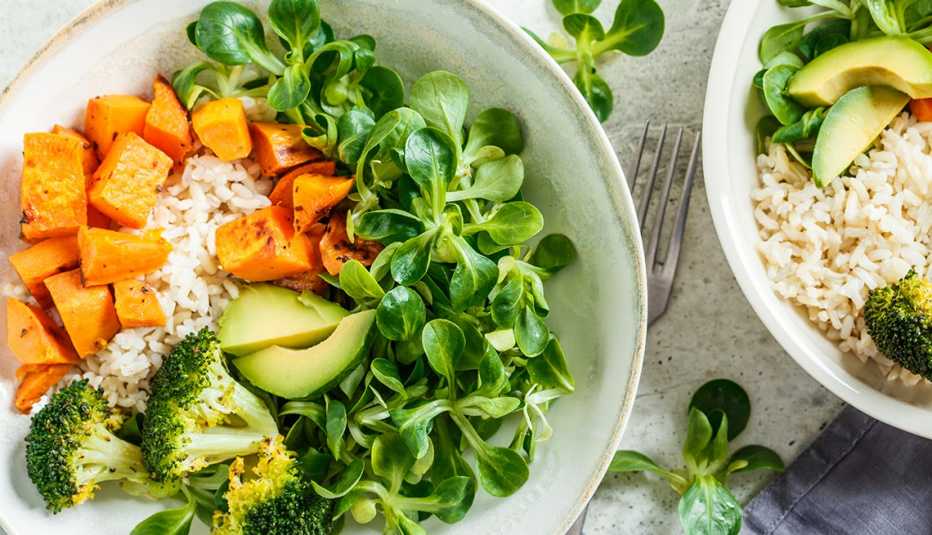AARP Hearing Center


For decades, the scientific community thought certain foods could cause peptic ulcers. Now, we know better.
Ulcers, painful sores that develop in the lining of your stomach and small intestines, are almost always caused by one of two things:
- Bacteria called Helicobacter pylori (H. pylori) that live in the stomach.
- The use of pain medications (nonsteroidal anti-inflammatory drugs) that erode the lining of the stomach.
That doesn’t mean what you eat doesn’t matter. Some foods are linked to a lower risk of ulcers because they are anti-inflammatory, coat the lining of the stomach or strengthen its microbiome. Others can cause discomfort if you have an ulcer.
“There’s no specific diet for peptic ulcer disease, but in general, we tell patients to avoid things that hurt or cause pain,” says Reid Ness, M.D., associate professor of medicine in the division of Gastroenterology, Hepatology and Nutrition at Vanderbilt University Medical Center.
Here are foods to eat if you have an ulcer or are prone to them, and some things you may want to avoid:
1. Broccoli and other high-fiber foods
Research reveals that eating a diet rich in fiber can lower your risk of developing an ulcer. In one study, Harvard researchers followed male participants for six years and found that the risk of an ulcer was 45 percent lower for those with the highest fiber intake, compared with the lowest.
Foods with fiber “coat the lining of the stomach and reduce the damage that gastric acid would have on the stomach lining, thereby reducing the formation of ulcer or preventing ulcer formation,” says Devika Kapuria, M.D., a gastroenterologist and assistant professor at the Washington University School of Medicine in St. Louis.
Top choices: Broccoli, as well as other cruciferous vegetables, leafy greens, berries, oatmeal, high-fiber cereals and whole-grain breads
2. Sweet potatoes and other foods high in vitamin A
Sweet potatoes are one of the richest sources of vitamin A, and a few small studies indicate the root vegetable appears to have anti-ulcer properties. The same Harvard study described above found that diets high in vitamin A were associated with a 54 percent lower risk of ulcers.
Top choices: Besides sweet potatoes, other good sources of vitamin A include carrots, squash, kale, spinach, broccoli, tomatoes, red bell peppers, cantaloupe and mango. Many breakfast cereals, juices and dairy products are fortified with vitamin A.






































































More From AARP
5 Easy Ways to Improve Your Gut Health
The 100 trillion microbes in your belly can keep you happy and healthy if you feed them right.9 Nutrients You Need More of As You Get Older
Find out which vitamins, minerals and other essential elements you may lack in your diet
12 Foods That Could Help You Lose Weight
These foods can help optimize weight loss